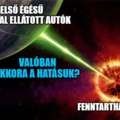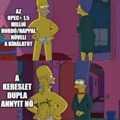So here we are: the Gold Standard was discredited in the 1930s and the paper money regime by the recent economic crisis (and also the inflationary periods in many countries), so the world is looking for new (or old) solutions. Hence the renewed interest in the Gold Standard. Of course it does not have to be gold, in theory anything with a roughly fixed supply would do, Saudi Arabia may even use oil as a basis of its currency for example.
Interesting piece of news today: the Republican Party in the US is talking about potentially returning to the Gold Standard (see the story in the FT, registration required, or see a summary here).

Source: peterplanchet.com
The Gold Standard debate will make mainstream economists furious (I am sure Krugman is writing something about it right now, and will probably call it a “wonkish” topic - he has already written it, see here). Gold is a “barbarous relic”, the peg to gold was the cause of the Great Depression and so on…
One big advantage of the gold standard is that governments cannot print gold, and thus it is impossible to have runaway inflation as long as you maintain the gold link. But most people would say that the big disadvantage of gold is exactly this, that governments (central banks, to be more precise) cannot print it and therefore cannot stimulate the economy when it is weak. Others swear that gold is the only real money, all else is worthless paper.
I think that re-introducing the gold standard with the current fractional reserve banking would be a folly. To understand this whole debate we need a bit of financial history, so bear with me. Gold standard or not, financial sectors in at least the past few hundred years operate on the basis of not holding enough reserves to cover the possibility that everyone wants to take out their deposits at the same time (which is called a bank run). That is what fractional reserve means. The banking system as a whole can create money without gold or central bank money backing.
In a Gold Standard, a bank run means that the bank in question is bust, and only the people at the head of the queue outside the bank building will get their deposits back. The loans the bank gave out, even if they are sound, are long-term, and cannot be called or liquidated at short notice. It is rational to join the line if you see one outside the bank. In a milder version of a bank run if many of the loans go sour and is not repaid, the bank in question will restrict further lending so that it is less “stretched”. If everyone does this at the same time (which is usually the case) you get a recession or depression. The financial system amplifies economic cycles, which feels great in an upswing but terrible in a downswing.
When times are good, the banking sector would create money by lending, and the gold “cover” would decline. When times are bad there would be a bank run to convert to gold (everyone would know that there is only a fraction that can be converted), and eventually the link to gold would be broken. This is the short and overly simplified description of what happened in the Roaring Twenties and the Depressive Thirties of the last century.
In a paper money system, there is a central bank, and it can print additional money to lend to banks (no gold backing is necessary) if there is a bank run. It can also print money and force down interest rates if the whole economy slows – this is what has been going on with major central banks like the FED and the ECB in the past few years. There are usually other things like deposit insurance, but let’s keep things as simple as we can. So the central bank can smooth out economic cycles, but creates two dangers while doing that. One is that it can create inflation – this is why inflation targeting was introduced. The other is that it encourages excessive risk taking by promising to always ride to rescue the economy in general and banks that are illiquid. That is roughly what led to the recent economic crisis: too much risk insurance was offered by central banks, and the economy responded by taking on too much risk (too much borrowing, sometimes with additional FX and maturity risk as for example in Hungary).
So here we are: the Gold Standard was discredited in the 1930s and the paper money regime by the recent economic crisis (and also the inflationary periods in many countries), so the world is looking for new (or old) solutions. Hence the renewed interest in the Gold Standard. Of course it does not have to be gold, anything with a roughly fixed supply would do, Saudi Arabia could use oil as a basis of the currency for example. But returning to the Gold Standard as it operated in the early 20th century would eventually lead to the same problems.
But an interesting experiment would be to introduce the Gold Standard with full reserve banking. This would mean mostly equity financing and no money creation by the banking sector. The banking/private sector as a whole could only re-lend the fixed amount of gold, could not create more of it when business is booming. And it would not need to reduce money supply when people are scared and want their gold back. Less boom (which would not be popular) and less bust. The banking sector would not be able to issue more gold certificates (paper money in other words) than there is gold in reserves. This eventually may be more healthy than the current state of affairs, with credit booms and busts, but the transition is politically impossible – you would have to dismantle and re-build the financial sector.
So my guess is that re-introducing the Gold Standard will just remain a plan, but talking about it shows that some people in the US are skeptical about the long run benefits of solving economic problems by printing pieces of paper …
A bejegyzés trackback címe:
Kommentek:
A hozzászólások a vonatkozó jogszabályok értelmében felhasználói tartalomnak minősülnek, értük a szolgáltatás technikai üzemeltetője semmilyen felelősséget nem vállal, azokat nem ellenőrzi. Kifogás esetén forduljon a blog szerkesztőjéhez. Részletek a Felhasználási feltételekben és az adatvédelmi tájékoztatóban.




